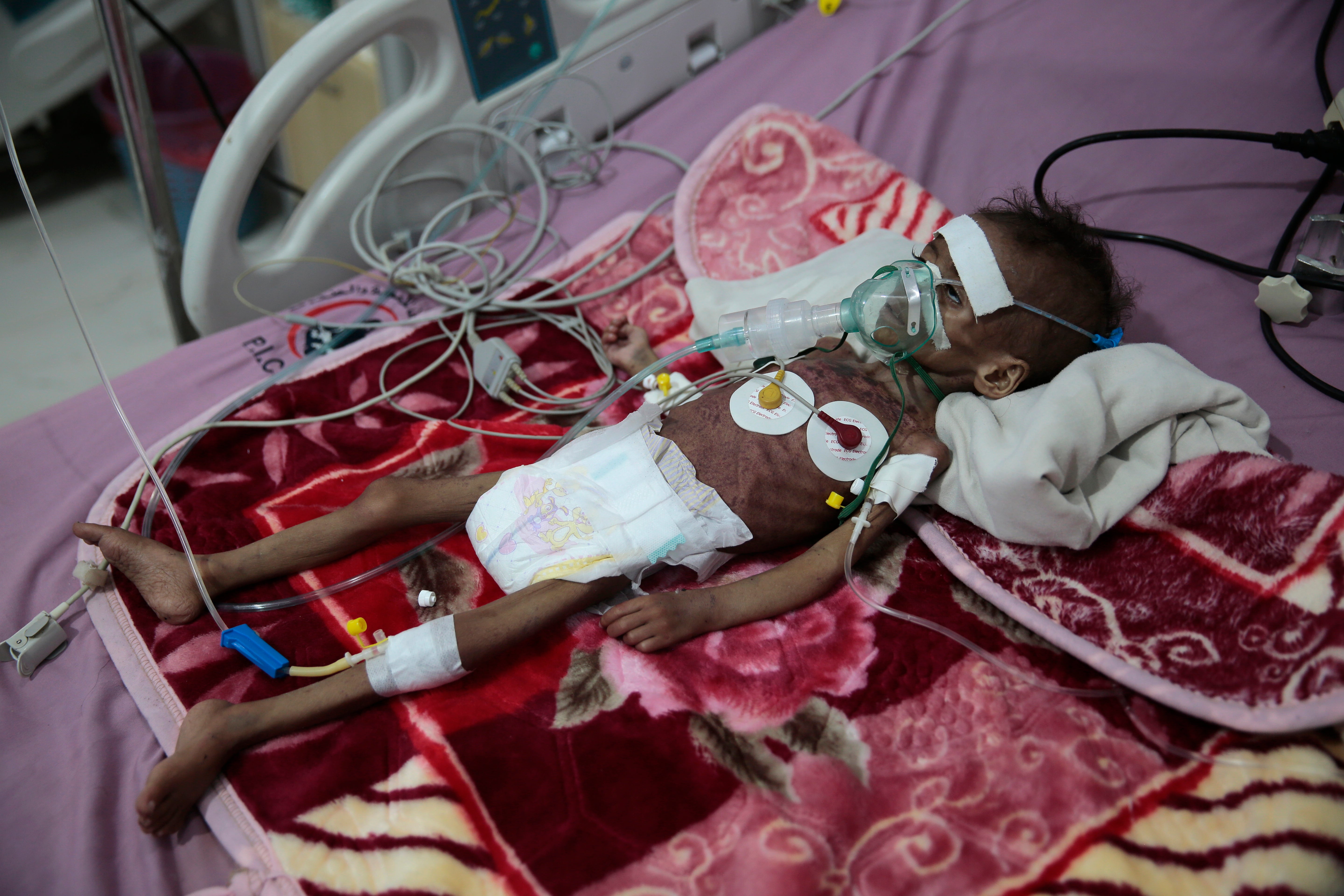UN warns COVID-19 is `roaring back' as Yemen faces famine
The U.N. humanitarian chief is warning that the world’s biggest humanitarian crisis in Yemen is getting even worse with the COVID-19 pandemic “roaring back” in recent weeks as the Arab world’s poorest country faces a large-scale famine

Your support helps us to tell the story
From reproductive rights to climate change to Big Tech, The Independent is on the ground when the story is developing. Whether it's investigating the financials of Elon Musk's pro-Trump PAC or producing our latest documentary, 'The A Word', which shines a light on the American women fighting for reproductive rights, we know how important it is to parse out the facts from the messaging.
At such a critical moment in US history, we need reporters on the ground. Your donation allows us to keep sending journalists to speak to both sides of the story.
The Independent is trusted by Americans across the entire political spectrum. And unlike many other quality news outlets, we choose not to lock Americans out of our reporting and analysis with paywalls. We believe quality journalism should be available to everyone, paid for by those who can afford it.
Your support makes all the difference.The U.N. humanitarian chief warned Thursday that the world’s largest humanitarian crisis in Yemen is getting even worse with the COVID-19 pandemic “roaring back” in recent weeks as the Arab world’s poorest country faces a large-scale famine.
In a grim update to the U.N. Security Council, Mark Lowcock said tens of thousands of people already are starving to death, with another 5 million just a step behind.
Lowcock added that March was also the deadliest so far this year for civilians, with more than 200 killed or injured as a result of hostilities -- a quarter of the casualties in the oil-rich central province of Marib where Houthi rebel forces are pressing a military offensive. In March, nearly 350 private homes were also damaged or destroyed, he said.
To stop the “unfolding catastrophe,” Lowcock called for urgent action on protecting civilians, access for humanitarian aid, funding, support for Yemen’s economic and progress toward peace.
Because of funding cuts, the U.N. is now able to help only 9 million people a month, down from nearly 14 million a year ago, he said. A pledging conference on March 1 got promises of $1.7 billion, less than half of what’s needed, he said, and “more money for the U.N. response plan is the fastest, most efficient way to save millions of lives.”
In 2014, Iranian-backed Shiite Houthi rebels overran the capital, Sanaa, and much of Yemen’s north, driving the government of President Abed Rabbo Mansour Hadi into exile. A U.S.-backed, Saudi-led coalition intervened the following year against the Houthis to try and restore Hadi’s rule.
U.N. special envoy Martin Griffiths called for a nationwide cease-fire and urged the warring parties to agree on a specific time to launch political talks aimed at ending the six-year conflict. He pointed to COVID-19 unleashing itself again on the Yemeni people, “the urgent humanitarian situation,” and continuing violence especially in the oil-rich central province of Marib.
The Houthis launched an offensive in Marib to try to take the ancient desert city, where about 1 million Yemenis have fled since 2015 to get away from fighting elsewhere. Griffiths said “fighting in the area is showing dangerous signs of escalating once again,” with displaced people “in the line of fire.
The U.N. envoy said he is also “alarmed by reports of multiple drone and ballistic missile attacks” carried out by the Houthis against Saudi territory during the past week, including against civilian facilities.
Griffiths said fighting has also increased in Taiz which like many areas of the country has been hit “by an alarming resurgence of COVID-19 cases.” Key roads in Taiz have been closed for several years, he said, “inflicting terrible social and economic consequences on the people.”
Lowcock, the humanitarian chief, warned that if the fighting continues in Marib, Taiz and Hodeida where the country’s main port is located, “we expect tens of thousands -- at least -- more people will be forced to move, and that will be very dangerous as we see the latest COVID spike.”
On the political front, Griffiths said he has recently visited Oman, Saudi Arabia, the United Arab Emirates and Berlin and “there is a convergence of diplomatic voices in favor of an end to the war and its successful political resolution.”
“There is reason for hope: the way to end the war is known, and its principal elements frequently discussed with the parties,” he said. “All we need now ... is for the parties to agree to this deal,” Griffiths said. “That’s all.”